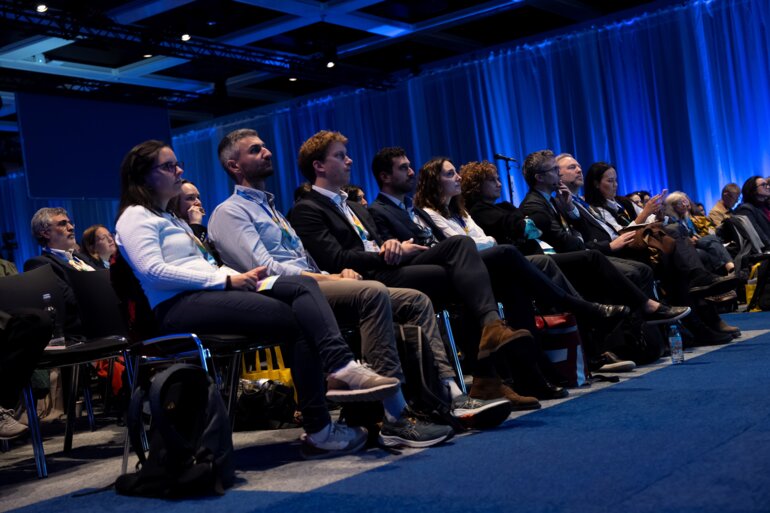After impressive results were achieved in melanoma, there is now great interest in exploring the potential of dual LAG3/PD-1 inhibition in other tumour types
The oncology landscape was transformed in 2011 and 2014 with the approval of inhibitors targeting the checkpoint proteins CTLA-4 and PD-1. After impressive results were reported in a range of solid malignancies, with checkpoint inhibitors becoming the standard of care for multiple tumour types, more recently there has been huge interest in identifying novel checkpoint pathways in order to overcome some issues, including the failure of some patients to respond and the high rates of immune-mediated adverse effects in combination treatments targeting CTLA-4 and PD-1 simultaneously. This year, an important breakthrough was achieved in this field, with the regulatory approval of a checkpoint inhibitor agent active against a third target – lymphocyte-activation gene 3 (LAG3). LAG3 is a cell-surface molecule that is expressed on T cells and negatively regulates T-cell proliferation and function. Relatlimab is a first-in-class inhibitor of LAG3 that has recently been approved by the US Food and Drug Administration and received a positive opinion from the Committee for Medicinal Products for Human Use (CHMP) of the European Medicines Agency recommending approval as part of a fixed-dose combination treatment with the PD-1 inhibitor nivolumab for the first-line treatment of advanced melanoma. These approvals were based on results from the RELATIVITY-047 phase III trial, which demonstrated greater progression-free survival in patients with previously untreated metastatic or unresectable melanoma who received relatlimab and nivolumab as a fixed-dose combination compared with those treated with nivolumab alone (New Engl J Med. 2022;386:24–34). Following on from these results, there is naturally now a great deal of interest in exploring the potential of dual LAG3/PD-1 inhibition in other tumour types beyond melanoma and it is interesting to see some early signs of efficacy in non-small-cell lung cancer in the phase II NEOpredict-Lung trial (LBA37) presented at ESMO Congress 2022.
In the RELATIVITY-047 trial, the combination of relatlimab and nivolumab appears to work particularly well in patients with low PD-L1 expression and as a result the CHMP recommendation in melanoma is limited to patients with PD-L1 expression <1%. However, this CHMP recommendation is somewhat controversial as the FDA approval does not contain such restriction, and the authors of the study concluded that PD-L1 expression does not have a clear role in predicting whether the addition of relatlimab is beneficial compared with nivolumab alone. PD-L1 levels are not broadly used as a biomarker in melanoma, but this may change in the future with the adoption of increasingly complex treatment algorithms. It will be interesting to see whether similar results are observed in other tumour types, particularly those where the measurement of PD-L1 expression is a more well-established part of clinical decision-making.
In addition to identifying the patient population who are most likely to benefit from dual LAG3/PD-1 inhibition, the question of when to treat is also of great interest to the oncology community. In every indication, there is interest in using checkpoint inhibitors at earlier and earlier stages of treatment. Immunotherapy agents were initially used in patients with metastatic disease, but now we see patients receiving them after surgery in order to prevent recurrence. Current studies are now beginning to evaluate them in the neoadjuvant setting, with the idea that checkpoint inhibition can achieve better immune stimulation when tumour-antigens are presented to T cells in an intact tumour microenvironment. In future, surgery can perhaps be avoided completely in some cancer forms, if a good response to immunotherapy is achieved. Trials that are designed to compare dual LAG3/PD-1 inhibition in the neoadjuvant versus adjuvant setting will be of great interest in all tumour types to ensure that checkpoint inhibitors are used to their full potential.
Abstract presented:
Schuler M, et al. A randomized, multicentric phase II study of preoperative nivolumab plus relatlimab or nivolumab in patients with resectable non-small-cell lung cancer (NEOpredict-Lung). ESMO Congress 2022, LBA37
Proffered Paper Session – Investigational immunotherapy 09.09.2022, h. 16:00 – 17:15, Fécamp Auditorium





